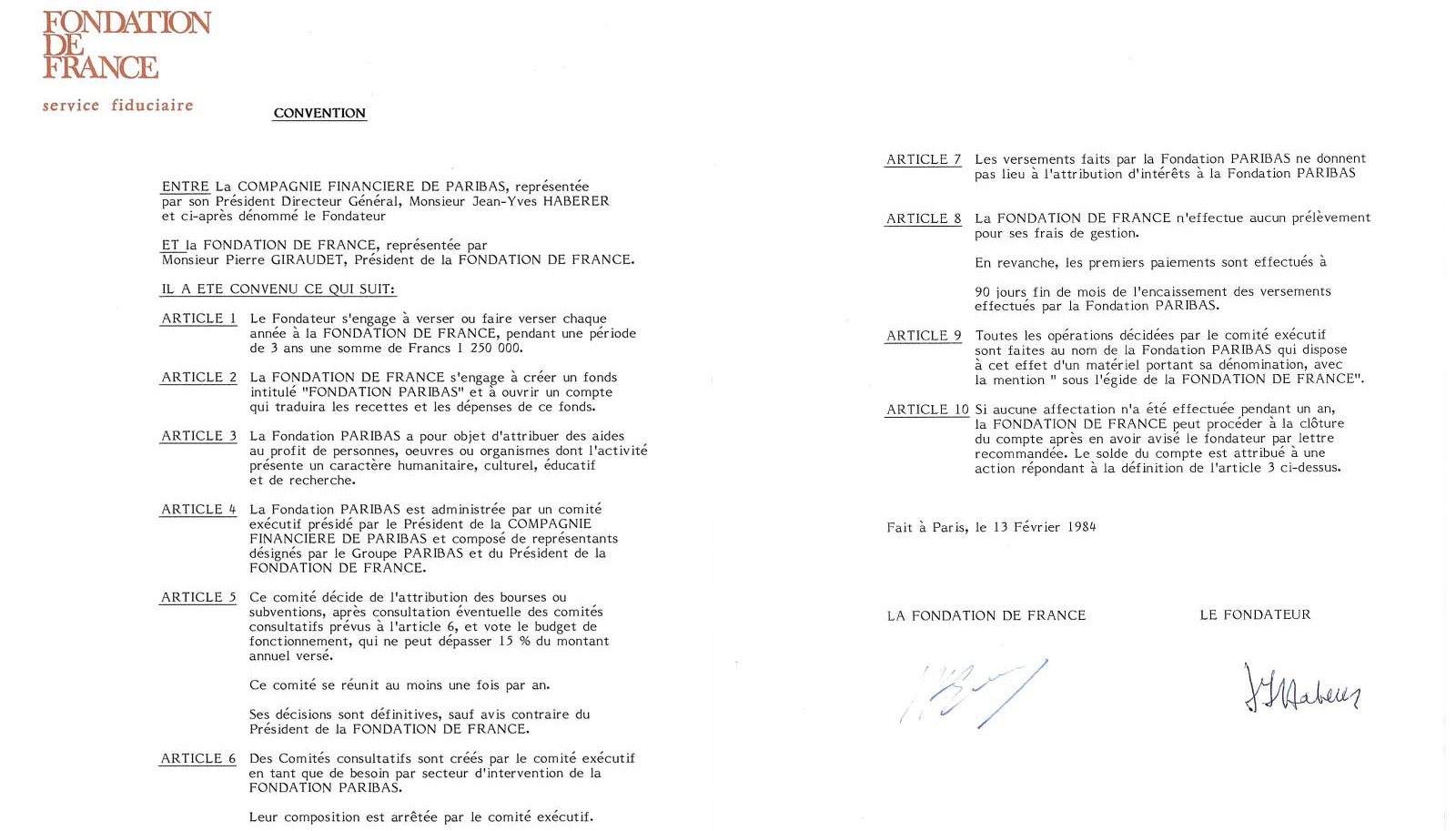BNP Paribas Fortis and Great Britain during the two world wars

Here are two documents which offer an insight into how BNP Paribas Fortis, operating from London during the two world wars, played its role in assisting the Allied countries and Great Britain.
The first document is a letter from Edmond Carton de Wiart, director of the Société Générale de Belgique [a forerunner bank of BNP Paribas Fortis] who fled to London, written to his brother Henri, the Belgian Minister of Justice, in exile in Le Havre.
The second is an item describing the exploits of an employee at the Banque Belge pour l’Etranger (BBE) fighting for the British forces during the Second World War.
Background
Between 1914 and 1918, and again between 1940-1944, London was home to the headquarters of the Banque Belge pour l’Etranger (BBE, a BNP Paribas Fortis forerunner) in London. It became the nerve centre for the business activity of the Société Générale de Banque group (a BNP Paribas Fortis forerunner) outside occupied Europe, and served the Allied cause and German-occupied Belgium. Led by a local board composed of and chaired by English members, the bank’s role was to co-ordinate the Group’s financial transactions. It assisted Belgians in exile, supported the war effort, raised funds for the Commission for Relief in Belgium (CRB), and was responsible for the transfer of funds for this organisation, to which it would provide overdraft facilities.

By welcoming the Générale de Banque, but also a part of the Belgian Government, Great Britain helped to ensure the survival of Belgium during the two world wars, particularly by enabling it to supply its population and finance solidarity funds.

For its part, in 1940-1944, the Banque du Congo Belge (founded in 1909 and belonging to the Générale de Banque’s holding company), based in London at the premises of the BBE Overseas Ltd, made a commitment to the Bank of England, starting in June 1940, to provide finance in international currencies for all British imports of raw materials from the Belgian Congo.

The « Commission for Relief in Belgium » housed in London

[Apocryphal] letter from Edmond Carton de Wiart, director of the Société Générale de Belgique who escaped to London, written to his brother Henri, the Belgian Minister of Justice in exile in Le Havre.
Bishopsgate, London, June 6, 1916.
My dear minister, dear Henry,
It has been a month since I last wrote to you, and you must be wondering whether I am still alive… You need not worry; my recent trip to the States is the only reason for the interruption in my correspondence.
What a destiny is ours! Both of us in exile: you in France, and I in London… For almost two years now, whether I like it or not, I have had to set aside hopes of fighting, instead serving the national cause by pushing pieces of paper around. Who can say whether I am more useful like this? Jadot and Francqui assure me that yes, I am “the right man in the right place”. When Antwerp fell, they were the ones who insisted that one of the members of the board of directors of Société Générale should go to London, in order to keep in touch with the group’s subsidiaries operating in Congo, China or elsewhere. I must admit that the offices of the Banque Belge pour l’Étranger, in the heart of the City, are more comfortable than the trenches of the Yser. And, fortunately, my role is not limited merely to overseeing the group’s industrial and financial interests!

Speaking of which, I have something to tell you regarding the resupply of the country. You write to tell me that the Belgian government is wary of Hoover and is reluctant to entrust such important funds to an individual, even one who is an American and an engineer. Given that “your” government has appointed me as “his” representative to the Commission for Relief in Belgium, please permit me to give you my brief opinion on the subject.
In my opinion, Hoover is a man sent by Providence. It was he who set up the “Relief” mechanism. Thanks to him, we are able to buy from the United States foodstuffs that keep 7 million Belgians and 1 million French people from starvation under the German boot. I was there, during his negotiations with the British authorities, when he wrested from those Navy gentlemen permission for the CRB’s ships to cross the maritime blockade. I can assure you that without Hoover’s energy, the wheat that the Belgian government buys from Uncle Sam would never have reached Antwerp and Amsterdam! Hoover has his foibles, certainly; he likes to be praised, but he is a straightforward man, and damned effective. Lastly, be assured that the Belgian Bank, as banker for the Relief, carefully controls all movements in the accounts it handles.
[…]
You ask me, how am I so easily able to be in touch with my colleagues in Brussels? We owe this above all to the exquisitely obliging Marquis de Villalobar, the Spanish ambassador stationed in Brussels, whose (diplomatic) bag has more than once enabled us to cock a snook at German censorship.
I hope your family fares well, and I send you my very fondest wishes.
Your loving brother
Edmond
PS. I have not forgotten about the question of the credit made available to Belgium by Great Britain for financing the purchase of war equipment. I will address this matter when I next write.
Act of bravery by a BBE employee during the Second World War
A “Victoria Cross” at the Banque Belge pour l’Étranger

The Victoria Cross, one of the highest honours awarded by the British Empire, rewards “acts of conspicuous bravery”: in its 150 years of existence, it has been granted fewer than 1400 times. The heroes it honours include a bank clerk – perhaps the only one: George-Albert Cairns.
Up until the war, Cairns’s life had been largely uneventful. In 1931, at the age of 18, he joined the Banque Belge pour l’Etranger as a “French Correspondent” (his studies at the Lycée Français in London had made him perfectly bilingual). He divided his free time between studying (he was preparing for an exam at the Institute of Bankers) and the bank’s sports club, where he played football. In 1941, he married one of his fellow workers at the Bank, Ena Duffy. However, less than a year later, he was called up to fight. Destination: Burma. Ena Duffy: ” Our farewell was dreadful: a cup of tea in London, a movie theatre and a quick supper before he caught the train. I never saw him again.”
Assigned to a regiment of the 77th Independent Infantry Brigade, Lieutenant Cairns was involved in the campaign in Burma against the Japanese army. It was a harsh struggle against superior enemy numbers, in a hostile, stifling jungle to which British troops were unaccustomed. In early 1944, seeking to halt the progress of Japanese troops, who had arrived at the gates of India, HQ mounted a commando operation to destroy Japanese lines of communication. On March 5, the 1st South Staffordshire Regiment, in which Cairns was a lieutenant, was dropped by glider far inside enemy lines. On the 12th, he captured the area known as “Henu Block”, severing the Japanese lines of communication. But at dawn on the 13th, the Japanese counterattacked with force. The South Staffordshire Regiment was ordered to take the hill from which the Japanese attack had begun. Fighting was fierce. At the top of the hill, crowned by a white pagoda, and in an area “no bigger than two tennis courts”, the opposing sides met in fierce hand-to-hand combat.

Lieutenant Cairns was attacked by a Japanese officer with a sword, who cut off his left arm. Despite the pain, Cairns shot the officer with his revolver at close range, picked up his adversary’s sword and, slashing back and forth, killed and wounded several enemies before falling himself. Spurred on by his example, his companions eventually routed the Japanese contingent, (“a very rare occurrence at that time”). Cairns was bayoneted several more times, and collapsed. He died within a few hours, but not before anxiously inquiring of his commanding officer, Brigadier Calvert, as to the outcome of the fighting: “Have we won sir? Was it all right? Did we do our stuff? ”.
Cairn’s exploit, although remarkable, was nearly lost in obscurity: the testimonies relating to this deed “worthy of a medieval paladin” were destroyed on March 24 in the crash of the plane carrying General Wingate. But Cairns’s wife had learned of her husband’s exploits through a few letters sent by his comrades. Through her tenacity, and the help of the bank, she managed to reopen the case and secure recognition for the heroism of her husband – whom she had never known to be a “quiet, good man.” Cairns was finally awarded the Victoria Cross in May 1949. One year later, the bank erected a memorial on its premises, in the presence of the administrator of the Société Générale de Belgique bank, Pierre Bonvoisin. This provided the opportunity for a moving tribute to an employee who had performed “an act of bravery that could not have been the result of a casual or sudden inspiration; but rather, the logical consequence of a life of hard work and a firm, resolute character.”
Partager cette page








